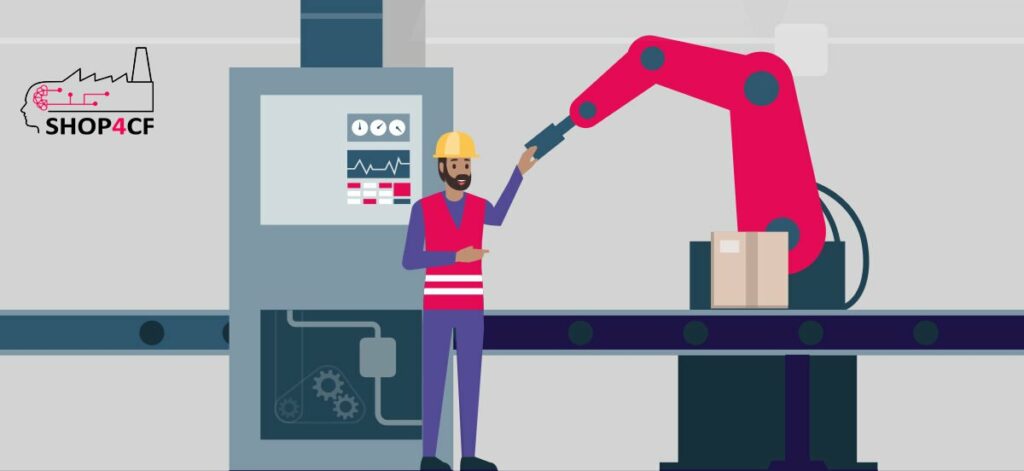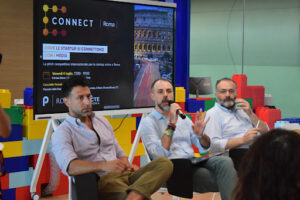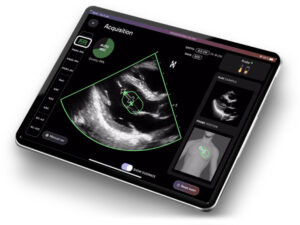
When Europe birthed the first industrial revolution, new methods of steam and water-driven milling resulted in the capability of economies to produce massive amounts of refined agricultural goods for the first time in history, and the resulting population explosion led subsequently to the first iteration of globalization.
Now, The Fourth Industrial Revolution promises to unearth new ways of working in our fully-globalized economy that will emphasize creativity and innovation while advantageously undoing the last vestiges of Fordian assembly-line manufacturing.
However, manufacturers engaged in shifting the paradigm to this new epoch must be aware of the consequences that full automation will inevitably have on established and developing economies so that they don’t exclude skilled workers from this new era of creative innovation.
To ensure a future for Europe that is technologically advantageous for all, the SHOP4CF consortium’s latest funding initiative aims to create a unique infrastructure for the convenient deployment of human-centric industrial applications. Backed by European Union’s Horizon 2020 research and innovation program and comprised of 20 partners that include a mix of research organizations, universities, industry partners, and SMEs, SHOP4CF’s latest open call for manufacturers seeks to eradicate the most quotidian of manufacturing tasks in a way that allows Europe’s workers to unleash their imaginative potential, free their minds, begin focusing on solving macro-strategic issues within their organizations, and develop in new ways professionally and as individuals.
Operated in part by ISDI, SHOP4CF lists a number of blue-chip manufacturing partners and premier academic and research institutions as its constituents which include: Arcelik, Bosch, Danish Technological Institute, European Dynamics, Fraunhofer, FZI, IRT Jules Verne, FundingBox, IMEC, Siemens, Tecnalia, Eindhoven University of Technology, PSNC, Tampere University, TUM, Uniwersytet Opolski, Volkswagen, Universidad Politécnica de Madrid and VTT.
Integrators, manufacturing companies, and developers eager to automate rote manufacturing processes while freeing up time for skilled workers are encouraged to apply to the collective’s open call. SHOP4CF is looking for solutions whose industrial relevance is immediately apparent in each use case, with the targeted technical maturity and proper consideration of human factors considered important criteria for the selection of the final proposals. Above all, applicant use-cases must be deployable within the program’s 8-month project window and answer the following questions with their proposal:
- What is the main relevant human-related issue to be solved or improved?
- What kind of human-technology interaction does the use-case introduce?
- Which are the most relevant workers or workers groups that are affected by the use-case implementation?
- How will the use-case improve the competitive position of the organization?
The open call registrant will be accepting requests for funding up until the deadline of 30 April 2022 at 22:59 UTC. Successful startups will be provided with mentorship opportunities and €100,000 over the course of eight months between 1 Aug 2022 and 30 Mar 2023.
In total, twelve projects will be selected.
“As the 4th Industrial Revolution advances, the need to unlock the creative potential of Europe’s manufacturing workforce through the power of automation will present a world of new opportunities both for skilled workers and entrepreneurs. AI and robotics are moving labor-intensive 19th-and 20th-century style production methods to a new era for the entire manufacturing sector, but it must be done in a way that unlocks the true value of skilled labor and values creativity and innovation,” Jesús Tapia, Head of ISDI Accelerator, SHOP4CF partner said. “The announcement of this new funding initiative will hopefully serve as the catalyst that sparks new innovations with widespread applications across Europe – the home of industrialized manufacturing – with minimal impact on skilled workers and entrepreneurs.”
Successful applicants will obtain technology and fundraising mentorship through the collective to ensure the successful deployment of their new automated manufacturing processes. Additionally, insights into how companies can acquire the follow-up funding required to see new automation concepts through to fruition will also be provided over the course of the 8-month program. Startups seeking to apply for the open call can find full details of the initiative here.





